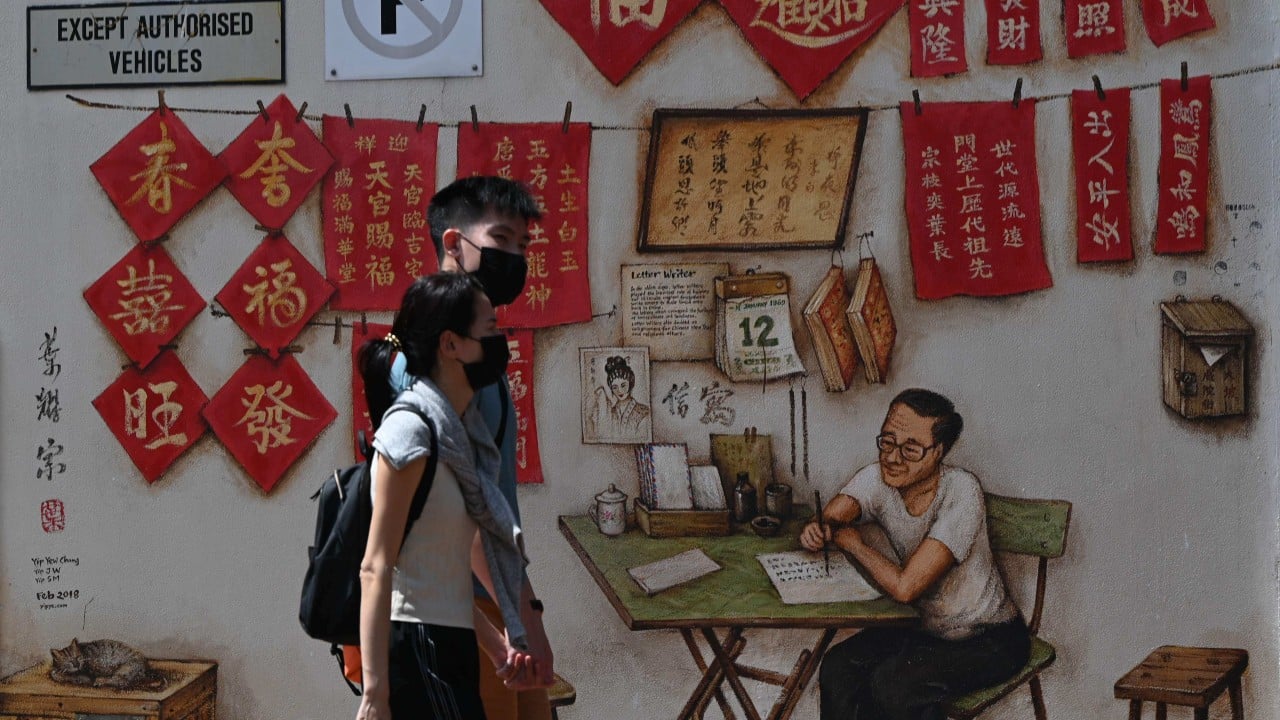I am a Chinese man. It’s just taken me more than 30 years to be OK with saying this.
Advertisement
You might not think so to look at me. I’m the son of a Singaporean Chinese mother and a British father, but the genetic lottery dished out a Caucasian face and that became a self-fulfilling prophecy.
When I was growing up in Singapore, people saw me as white, so that was how I felt. I never took Lunar New Year very seriously, and at my rebellious, teenage nadir even skipped the festivities entirely (well, almost). Instead of attending reunion dinner on the eve of the festival and big gatherings on days one and two, I stayed home in a sulk over the pointlessness of these centuries-old traditions. Shamelessly, I had no problems keeping the ang pow, or red packets containing money, collected on my behalf.
I gave up learning Mandarin effectively after primary school, having stupidly convinced myself that failing the subject was “cool”. It is deliciously ironic that I’ve ended up occasionally having to translate Chinese into English at work, muddling through with the help of native speakers and Google Translate.
Shamefully, I never learned Teochew beyond counting to 10 and asking, “How are you?” and “Have you eaten?” – even though my mother and her siblings spoke the dialect to each other and it was the closest link with my grandfather’s roots in Swatow (now Shantou, in Guangdong). The language barrier prevented me from having a direct conversation with my maternal grandparents.
Advertisement
In a way, putting my Chinese heritage on the back burner was practically official – my birth certificate holds no recognised Chinese name. My aunt came up with the Chinese surname I used in school, a phonetic version of Driscoll (di ke in pinyin), despite my mother’s perfectly fine Chinese surname being right there, ready to be inherited.

